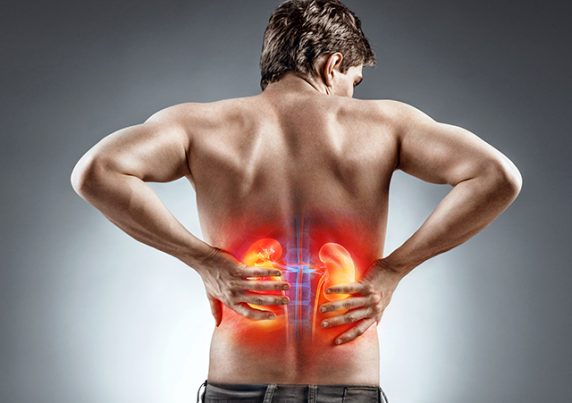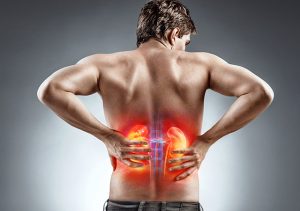
Renal stone – causes, side effects and treatments at NaturalPedia.com
Saturday, June 16, 2018 by Michelle Simmons
http://www.naturalpedia.com/renal-stone-causes-side-effects-and-treatments-at-naturalpedia-com.html

Also known as a kidney stone, a renal stone is a solid mass made of crystals that usually originates in the kidneys. Renal stones are the result of a buildup of dissolved minerals on the inner lining of the kidneys. A renal stone can also develop anywhere along the urinary tract, such as the ureters, bladder, and urethra. There are different types of renal stones: calcium stones, uric acid, struvite, and cystine.
The greatest risk factor for renal stones is producing less than one liter of urine per day, which is why renal stones are common in premature infants who have kidney problems. Nonetheless, renal stones most likely occur in people between the ages of 20 and 50. Other risk factors for renal stones include a history of kidney stones, race, gender, dehydration, obesity, a diet with high levels of protein, salt, or glucose, hyperparathyroid condition, gastric bypass surgery, inflammatory bowel diseases that increase calcium absorption, and taking medications like diuretics, anti-seizure drugs, and calcium-based antacids. Renal stone is also referred to as renal calculi and renal colic.

Known side effects of renal stone
The known side effects of renal stone include pain in the back, belly, or side, a painful or burning sensation during urination, urgent and frequent need to go to the bathroom, blood in the urine, cloudy or smelly urine, urinating a little bit each time you go, nausea and vomiting, and fever and chills.
Body systems harmed by renal stone
The body system harmed by renal stone is the urinary system.
List of foods or nutrients that prevent renal stone
Foods that prevent renal stone include foods rich in calcium, especially if consuming foods rich in oxalate. The calcium and oxalate bind together in the intestine to reduce the formation of stones. These foods include milk-based products, calcium-fortified foods like cereal, bread, and juices, beets on a spinach salad with low-fat cheese, and yogurt with berries. Other foods that prevent renal stones include fruits and vegetables, water, and plant-based protein such as beans, peas, and lentils. Foods to limit or avoid to prevent the development of renal stone include sodium and animal proteins like eggs, fish, pork, beef, and milk products.
Treatments, management plans for renal stone
Treatments for renal stone involve medication, lithotripsy, tunnel surgery, and ureteroscopy.
Home remedies for renal stone include water, lemon juice, basil juice, apple cider vinegar, celery juice, pomegranate juice, kidney bean broth, dandelion root juice, wheatgrass juice, and horsetail juice.
Where to learn more
- All-natural home remedies for dissolving painful kidney stones
- Kidney Stone Juice and Juices You Can Prepare to Remove Gallstones
- Recipes for Kidney Stone Prevention
- Lemon Juice + Olive Oil: Perfect Solution For Dissolving Kidney Stone
- The Three Best Foods for Kidney Stone Prevention
Summary
Renal stone is a solid mass made of crystals that usually originates in the kidneys.
Renal stones are the result of a buildup of dissolved minerals on the inner lining of the kidneys.
Renal stone is also referred to as kidney stone, renal calculi, and renal colic.
Renal stone causes pain in the back, belly, or side, a painful or burning sensation during urination, urgent and frequent need to go to the bathroom, blood in the urine, cloudy or smelly urine, urinating a little bit each time you go, nausea and vomiting, and fever and chills.
Foods that prevent renal stone include calcium and oxalate-rich foods, fruits and vegetables, water, and plant-based protein such as beans, peas, and lentils.
Renal stone treatments include medication, lithotripsy, tunnel surgery, and ureteroscopy.
Renal stone home treatments include drinking water, lemon juice, basil juice, apple cider vinegar, celery juice, pomegranate juice, kidney bean broth, dandelion root juice, wheatgrass juice, or horsetail juice.
Sources include:
Tagged Under: Tags: Renal stone





